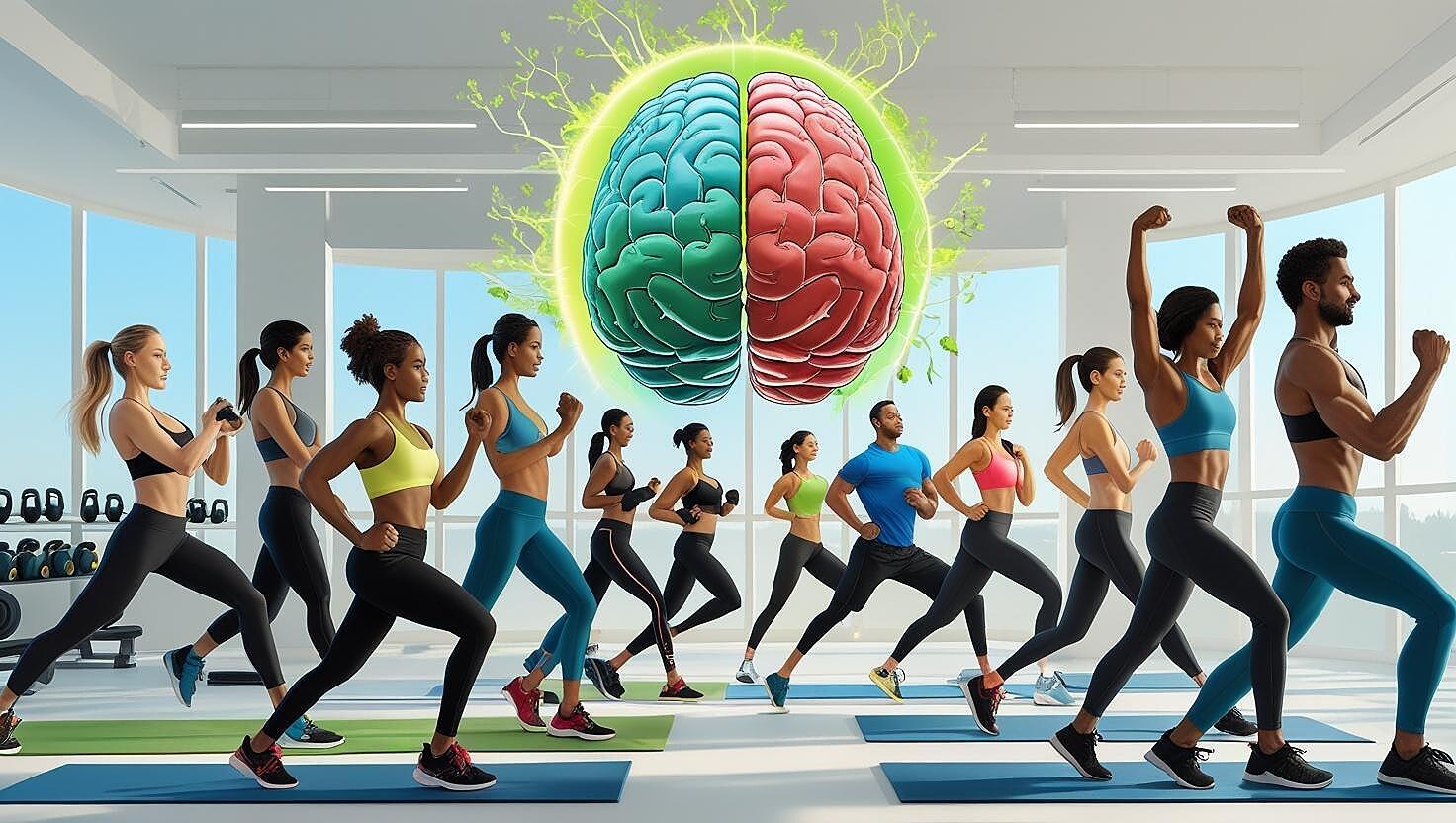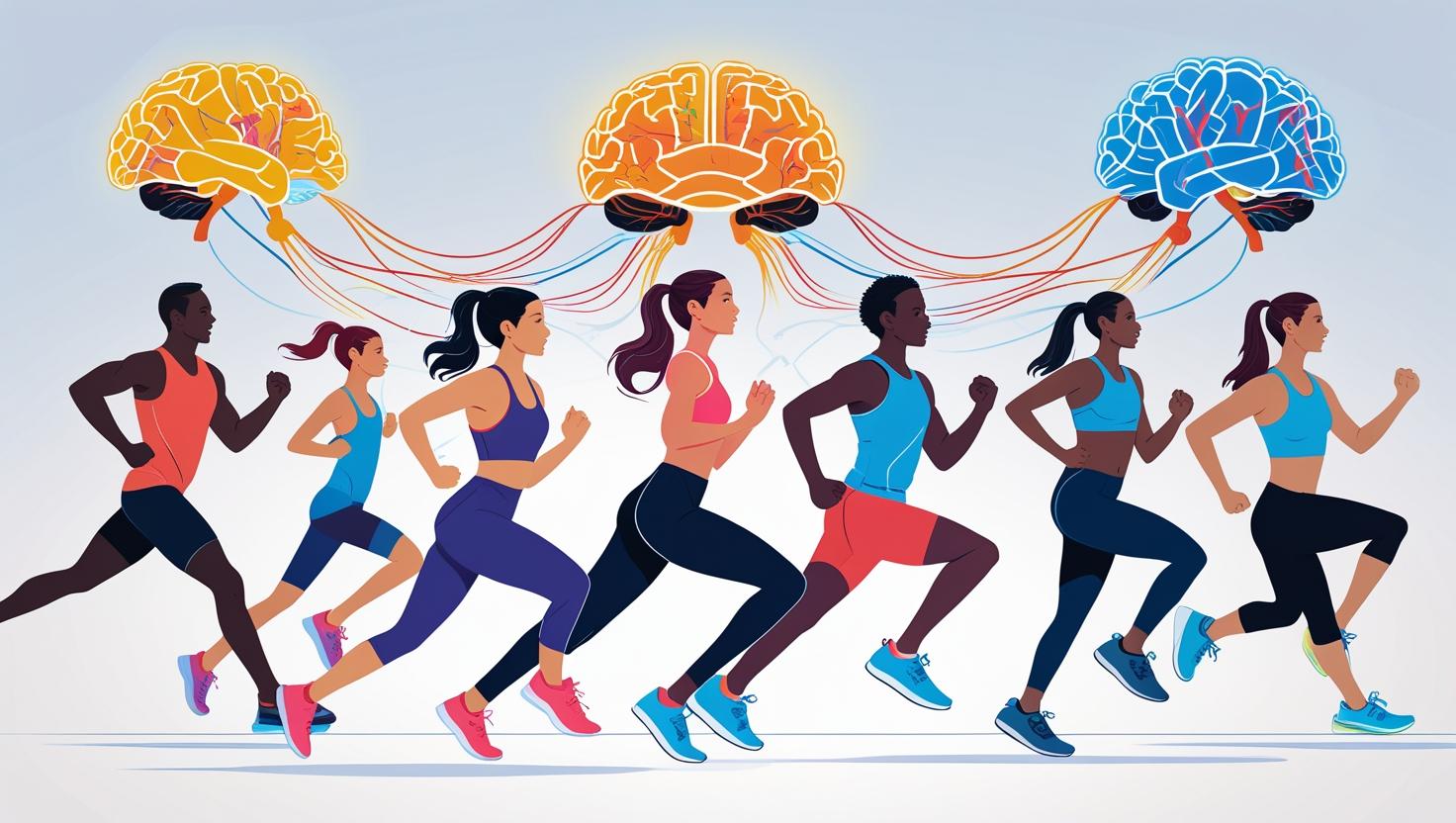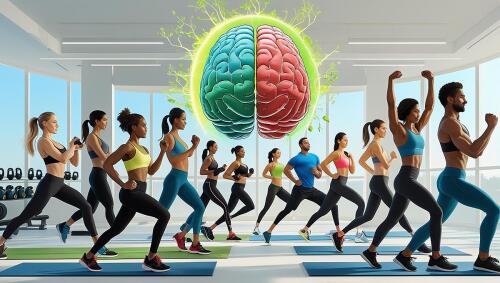
Movement for the Mind: Enhancing Cognitive Function Through Exercise
We often think of exercise as something we do for our physical health—but your brain benefits just as much, if not more. What if dedicating just 30 to 40 minutes a day to physical activity could sharpen your mind, elevate your mood, and even protect your brain as you age? The science says it can.
Let’s explore how regular movement transforms not just your body, but your brain:
 1.
Sharper
Thinking
and
Better
Memory
1.
Sharper
Thinking
and
Better
Memory
Cardiovascular exercise—like brisk walking, swimming, or cycling—increases the release of growth factors in the brain. These support the creation of new blood vessels and the growth of new brain cells, particularly in areas associated with learning and memory. The result? A more agile mind that retains information more effectively.
2. Lower Stress Levels
Exercise helps reduce stress by lowering levels of cortisol, the body’s primary stress hormone. At the same time, it boosts endorphins—those feel-good chemicals that promote a sense of calm and well-being. Just a short daily workout can make a measurable difference in how you handle everyday stress.
 3.
Stronger
Brain
Connectivity
3.
Stronger
Brain
Connectivity
Regular aerobic activity enhances the way different regions of the brain communicate. This improved connectivity supports better decision-making, faster reaction times, and enhanced problem-solving abilities. In essence, exercise makes your brain more efficient.
4. Slower Cognitive Decline
As we age, the brain naturally loses volume and function—but exercise slows this process. Long-term physical activity helps preserve brain structure, especially in regions involved in memory and executive function. It also lowers the risk of neurodegenerative conditions like Alzheimer’s disease.
 5.
A
Natural
Mood
Booster
5.
A
Natural
Mood
Booster
Struggling with anxiety or depression? Exercise could be part of the solution. Aerobic activity increases the availability of mood-regulating neurotransmitters like serotonin and dopamine. Over time, this leads to more stable moods, increased resilience, and a more positive outlook.
.jpg) 6.
Better
Sleep
=
Better
Brain
6.
Better
Sleep
=
Better
Brain
Sleep and brain function go hand in hand. Physical activity helps regulate your internal body clock, making it easier to fall asleep and stay asleep. In turn, good sleep supports memory, emotional regulation, and attention.
The Bottom Line
Your brain is one of the biggest beneficiaries of consistent physical activity. Whether it’s a morning walk, a yoga session, or a dance class, moving your body is an investment in your mental clarity, emotional balance, and long-term brain health.
Have you noticed a mental or emotional shift since starting an exercise routine? Share your experiences and you might inspire someone else to get moving.
- Julie "Brain Lady" Anderson

